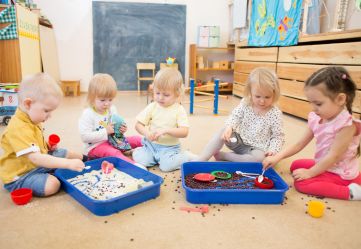Children’s Day: Building Bright Futures
Introduction
Children’s Day is a celebration dedicated to honoring the joy, innocence, and potential of children. It is a day that emphasizes the importance of nurturing young minds and ensuring their futures are bright. This article, Children’s Day: Building Bright Futures, explores the significance of this special day and the various aspects that contribute to the overall development of children.
Historical Background
- Origins of Children’s Day
The origins of Children’s Day vary across different countries, but the central theme remains the same: to recognize and celebrate the importance of children. In many parts of the world, Children’s Day was initiated in the early 20th century to promote children’s welfare and rights. For instance, Turkey was one of the first countries to officially dedicate a day to children in 1920, and India followed suit in 1954, choosing November 14th as Children’s Day to honor the birthday of their first Prime Minister, Jawaharlal Nehru, who was known for his love for children.
- Global Celebrations and Traditions
Children’s Day is celebrated in various ways around the globe, with each country adding its unique cultural touch to the festivities. In Japan, Children’s Day is part of the Golden Week holidays and features the flying of colorful koinobori (carp streamers) to symbolize strength and perseverance. Mexican Children’s Day or El Día del Niño also involves games, music, and food that children of Mexico love. These global celebrations highlight the universal acknowledgment of the importance of children in society.
Education and Learning
- Role of Education in Shaping Futures
Education is a cornerstone of building bright futures for children. It equips them with knowledge, skills, and critical thinking abilities necessary for personal and professional success. Quality education lays the foundation for lifelong learning and development, enabling children to reach their full potential and contribute positively to society.
- Innovative Learning Methods for Children
Innovative learning methods are essential to keep children engaged and motivated. Techniques such as project-based learning, gamification, and digital classrooms make education more interactive and enjoyable. These methods foster creativity, collaboration, and problem-solving skills, ensuring that children are well-prepared for the future.
Health and Well-being
- Importance of Physical Health
Physical health is crucial for the overall well-being of children. Regular physical activity, a balanced diet, and adequate sleep are fundamental components of a healthy lifestyle. Encouraging sports and outdoor activities helps in the physical development of children and instills healthy habits that last a lifetime.
- Promoting Mental Wellness in Children
Mental wellness is as important as physical health in the development of children. Promoting mental health involves creating a supportive environment where children feel safe and valued. Activities such as mindfulness, counseling, and stress management techniques can significantly improve mental health outcomes. Ensuring children have access to mental health resources is critical in building bright futures.
Creative Expression

- Encouraging Artistic Talents
Creative expression through art, music, dance, and theater is vital for the emotional and intellectual development of children. Encouraging artistic talents allows children to explore their creativity, express their emotions, and build self-confidence. Schools and communities should provide ample opportunities for children to engage in various forms of artistic expression.
- Benefits of Creative Activities
Engaging in creative activities has numerous benefits for children. It enhances cognitive abilities, improves motor skills, and boosts emotional resilience. Creative activities also foster social interaction and teamwork, contributing to the holistic development of children. By integrating creative arts into daily routines, we can nurture well-rounded individuals.
Technology and Future Skills
- Preparing Kids for a Digital Future
In today’s digital age, it is essential to prepare children for a future dominated by technology. Teaching digital literacy, coding, and internet safety are crucial skills that will help children navigate the digital world effectively. Providing access to technology and incorporating it into education can bridge the digital divide and ensure all children have the tools they need for success.
- STEM Education and Its Impact
STEM (Science, Technology, Engineering, and Mathematics) education plays a significant role in preparing children for future careers. By promoting STEM subjects, we can inspire curiosity, innovation, and problem-solving skills. Early exposure to STEM education encourages children to pursue careers in these fields, contributing to technological advancements and economic growth.
Social and Emotional Development
- Building Strong Emotional Foundations
Social and emotional development is critical for building strong, resilient individuals. Teaching children emotional intelligence, empathy, and self-regulation helps them navigate interpersonal relationships and cope with life’s challenges. Schools and parents play a pivotal role in fostering these skills through guidance and support.
- Importance of Social Skills and Friendships
Learning social skills as well as how to make friends are part and parcel of the growth process for a child. Positive social interactions contribute to emotional well-being and provide a sense of belonging. Encouraging children to participate in group activities, team sports, and social events helps them build strong relationships and enhances their social competence.
Parental and Community Support
- Role of Parents in Child Development
The most important role models within a child’s life are their parents. Providing a nurturing and supportive environment at home is crucial for the healthy development of children. Parental involvement in education, setting positive examples, and maintaining open communication can significantly impact a child’s growth and future success.
- Community Programs and Initiatives
Community programs and initiatives play a vital role in supporting children’s development. After-school programs, youth clubs, and community centers provide safe spaces for children to learn, play, and grow. Collaborative efforts between schools, parents, and community organizations can create a robust support system that ensures all children have access to resources and opportunities.
Conclusion
Children’s Day: Building Bright Futures is a reminder of the importance of investing in the well-being and development of our children. By focusing on education, health, creative expression, technology, social skills, and providing a supportive environment, we can ensure that every child has the opportunity to thrive. Celebrating Children’s Day is not just about honoring children but also about committing to actions that will build a brighter future for them. Let us all contribute to Children’s Day: Building Bright Futures by nurturing and empowering the next generation.
FAQs
What is the significance of Children’s Day?
- Children’s Day is a special day that is set apart with the aim of recognizing these young ones. It emphasizes the importance of nurturing young minds and ensuring they have the opportunities to build bright futures. It’s a reminder to invest in their well-being, education, and overall development.
How can we celebrate Children’s Day?
- You can celebrate Children’s Day by organizing fun activities, educational events, and community programs. Engage children in creative arts, sports, and interactive learning experiences. It’s a great day to show appreciation and support for the younger generation.
What role does education play in building bright futures for children?
- Education is crucial in shaping the futures of children. It equips them with the knowledge, skills, and critical thinking abilities needed for personal and professional success. Quality education lays the foundation for lifelong learning and development.
How can parents and communities support children’s development?
- Parents and communities can support children’s development by providing a nurturing and supportive environment. This includes being involved in their education, encouraging their interests, and participating in community programs that promote their well-being.
Why must it be necessary to listen to the kids?
- Listening to children’s voices is essential because they offer valuable insights into their needs, challenges, and aspirations. By including their perspectives, we can create more inclusive and effective solutions that address their concerns and help them thrive.














Post Comment